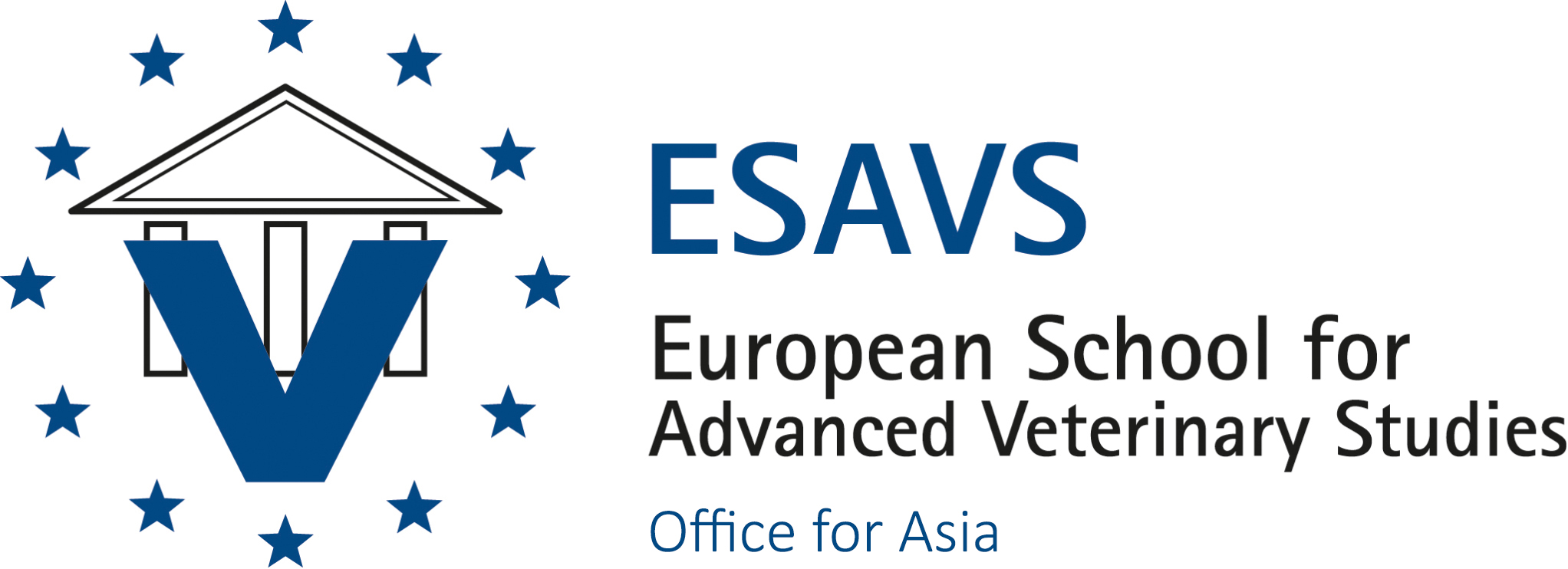- The internist: a pivotal role for all medical sciences -
Internal Medicine
Individual Courses and Comprehensive Study Program
The program of the courses is created to give the chance to participants to deepen their knowledge in internal medicine of companion animals. The courses will be at an advanced level, in case-oriented and problem-solving approaches; each week will focus on a specific “field” of small animal internal medicine in order to give to attending veterinarians basic as well as advanced competences in most important topics of veterinary internal medicine. By attending to all courses, the participants are expected to achieve an adequate level of skills to be able to solve problems in daily practice and to facilitate their cooperation with specialists in university and referral clinics.
The complete training programme consists of 9 periods of 5 days each; the entire programme will be given during three successive years. International guidelines and most recent scientific literature will be discussed during lectures, cases will be given to participants during practical sessions. Participants will be fully responsible to find adequate management plans and reach the diagnosis during practical sessions. Theoretical and practical sessions will allow the participants to achieve a level of knowledge and expertise that will enable them to manage any internal medicine case.
Please note: The courses can be taken in any order.
Course 1: Endocrinology in Dogs and Cats
The module provides most up to date knowledge about endocrine diseases of dogs and cats. The combination of theoretical and hands-on sessions will advance the knowledge of each participant. More and less experienced veterinarians are expected to benefit from this module.
Course 2: Gastroenterology in Dogs and Cats
Regurgitation, hematemesis/gastrointestinal blood loss, diarrhea, protein-losing enteropathies, gastroenteritis, intestinal biopsies, biliary tract diseases, congenital portosystemic shunts and pancreatitis are the subjects of the second course. Case-based interactive sessions are part of the programme.
Course 3: Nephrology in Dogs and Cats
Major topics include clinical and laboratory findings of kidney and lower urinary tract disease, acute kidney injury and dialysis, chronic renal failure, management of proteinuria, stones of the ureters bladder and urethra, as well as ectopic ureters, in dogs and cats, from the perspective of the internist, cardiologist, neurologist and intensive care specialist.
Course 4: Hepatic and Pancreatic Diseases in Dogs and Cats
Topics are the interpretation of chemistry panel tests and liver function tests, Indications for biopsy, the different kinds of hepatic biopsy, hepatic and bile cytology, chronic hepatitis and cirrhosis, acute hepatic intoxications, hepatic lipidosis, septic and non-septic cholangiohepatitis, hepatic lymphoma, acute pancreatitis and pancreatic insufficiency.
Course 5: Respiratory Diseases in Dogs and Cats
The module provides information about how to approach patients affected be respiratory disorders, including a number of upper and lower respiratory tract diseases (e.g., tracheal collapse, pulmonary parasites, eosinophilic pneumonia, neoplasia), as well as pulmonary hypertension, pathologies of the pleural space, mediastinum and chest wall. The module combines theoretical and practical sessions.
Course 6: Immune-mediated and Hematologic Diseases, and Coagulopathies
The approach to both congenital and acquired hematological diseases is the first topic of this module, focusing on erythrocytes, platelets, leucocytes and coagulation. In addition, other common immune-mediated diseases and polyarthritis are covered in the same module. Several clinical cases will be presented in order to make the topic simple and practical for all veterinarians.
Course 7: Infectious Diseases
The module covers the most relevant infectious diseases of dogs and cats. It includes infections caused by viruses such as parvovirus and coronavirus, by bacteria such as Leptospira and Bartonella, by protozoa such as Leishmania and Toxoplasma gondii, and by fungi such as Aspergillus. Clinical signs, laboratory findings and the most appropriate diagnostic tests and treatments will be addressed during theoretical and practical sessions.
Course 8: Basic Oncology and Neurology
An overview of the biology of cancer, the most common signs that lead to the suspicion of it (e.g. paraneoplastic syndrome), the concepts of staging and tips for effectively communicating with overwhelmed owners are the major subjects of the Oncology part of this course. Within the Neurology part you will learn how to recognize the presence of neurological disorders in your patients, how to correctly localize them within the nervous system, how to provide a list of differential diagnoses and an appropriate diagnostic and treatment plan.
Course 9: Basic Cardiology and Emergency Critical Care
In this module you will learn how to perform a proper and how to manage small animals in critical conditions. The main clinical signs that motivate a cardiological consultation, as well as the most relevant diagnostic and treatment aspects of the most frequent and important cardiac diseases in small animals as well as the basis of critical care willl be discussed.
Upcoming Courses
|
Course |
Date | Registration |
| Internal Medicine 6: Immune-mediated and Hematologic Diseases, and Coagulopathies (Course 6/9), Shanghai/China, Dr. Porporato & Dr. Rossi | 26. - 30. May 2025 | |
| Internal Medicine 7: Infectious Diseases in Dogs and Cats (Course 7/9), Shanghai/China, Dr. Rossi | 01. - 05. Dec 2025 |


